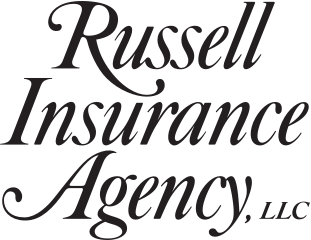
Public Act No. 14-74 was signed by Gov. Dannel Malloy on June 3, 2014, and went into effect on
Oct. 1, 2014. The law prohibits certain requests that have become prevalent in recent years that created
inaccurate or misleading certificates of insurance. The law also allows the Connecticut Insurance Department to investigate any possible violations
under the law.
While the law went into effect in 2014, the passage of similar laws more recently in New York
and New Jersey provide a good opportunity for members to review the Connecticut version, as well
as becoming familiar with the versions in the other states.
Q. What certificates are covered under the Connecticut law?
A. According to Public Act 14-74, a certificate is “a document or instrument that is prepared or issued
by an insurer or insurance producer as evidence of personal risk insurance or commercial risk
insurance, as both terms are defined in Section 38a663 that is issued on property, operations or risks
located in this state.” It does not include an insurance policy, binder, endorsement or an
automobile insurance identification/information card.
Q. Who does the law apply to?
A. The law applies to “persons,” as defined under Connecticut law. A person is an “individual, a
corporation, a partnership, a limited liability company, an association, a joint stock company, a
business trust, an unincorporated organization or other legal entity.” This definition is very broad,
and encompasses not just individual people, but businesses, organizations and the State of Connecticut.
Q. Does this law govern surplus-lines certificates?
A. Yes. The act applies to an insurer, as the term is defined under Connecticut law. An insurer or
insurance company includes “any person or combination of persons doing any kind or form of
insurance business other than a fraternal benefit society, and shall include a receiver of any insurer
when the context reasonably permits.” This also would include unauthorized surplus-lines insurers.
Q. What does the act prohibit?
A. The law prohibits certain certificate of insurance practices, including:
1. preparing, delivering or issuing for delivery a certificate of insurance that contains any
information about the coverage provided by the referenced policy that is false or
misleading;
2. preparing the alteration or amendment of a certificate of insurance, delivering or
issuing for delivery a new certificate, unless that new certificate, alteration or amendment is accurate in its statement of the
provisions of the referenced policy;
3. representing that either a certificate of insurance grants new or additional rights to
any person beyond those provided in the referenced policy or amending a certificate
if that amendment alters, extends or amends the coverage provided by the referenced
policy;
4. requiring that the certificate warrant that the policy of insurance referenced in the
certificate complies with the insurance or indemnification requirements of a contract;
5. preparing, issuing, demanding or requiring, in addition to, or in lieu of, a certificate of
insurance, an opinion letter or other document or correspondence that is inconsistent with the provisions of the law;
or
6. anyone from requesting or requiring another person to perform an activity that violates
the law.
Q. What are acceptable certificate forms?
A. Any certificate can be used, as long as it is not unfair, misleading or deceptive. It also cannot
violate public policy or any law, including regulations promulgated by the commissioner.
Unlike other states, such as New York, the law does not specify or require specific acceptable
certificates forms. It also does not require that any form be reviewed and approved by the Connecticut
Insurance Department.
Q. Does the law apply to all certificates issued in the state?
A. Yes, it applies to all certificates issued as evidence of personal risk insurance or commercial
risk insurance that is issued on property, operations or risks located in this state. The law will still apply
even when the third party, policyholder, insurer, producer or person requesting or requiring the
certificate are located out of state.
Q. Are “attestation” forms allowed?
A. No. The law specifically prohibits a certificate of insurance from warranting that the policy of
insurance referenced in the certificates of insurance complies with the insurance or indemnification
requirements of a contract. Furthermore, the inclusion of a contract number or description cannot
be construed as making such a warranty.
To learn more about certificates, please call our office.

